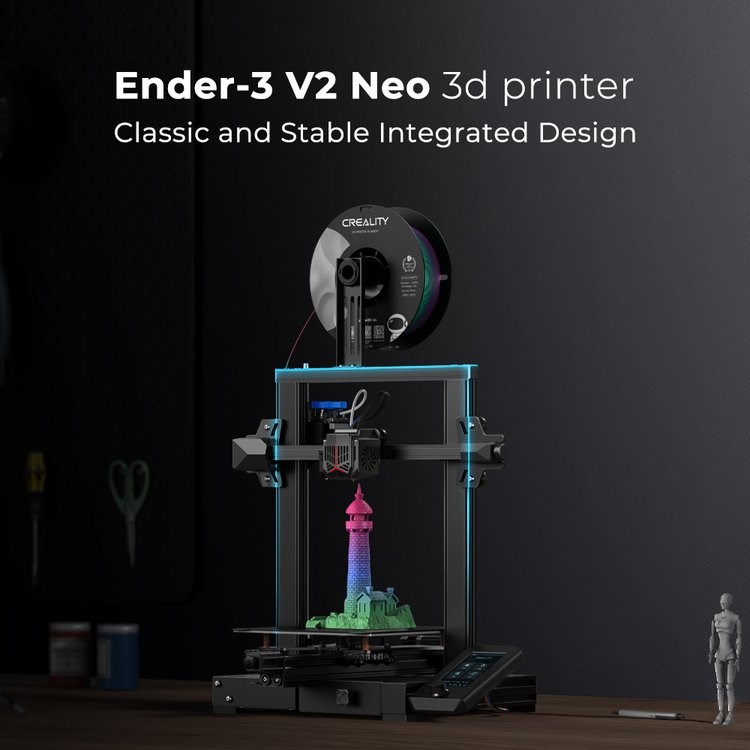The Ender-3 V2 Neo enjoys a number of upgrades and tweaks over its predecessors and entry level cousins, with features mainly derived from thousands of Creality customers who are now 3D enthusiasts. Thankfully, Creality take on board much of what their community says, adjusting each new release in the Ender-3 series to suit what their actual customer base wants. This has resulted in a supremely intuitive and easy to build entry level 3D printer in the Ender-3 V2 Neo, with improved handling and print quality, new flexible print bed and Creality's CR-Touch for automatic print bed levelling.
In this article
With a modest amount of money separating the Ender-3 variants, it might be confusing for novice hobbyists, who are asking - is it worth it?
Who Should Buy the Ender-3 V2 Neo?
Essentially, if you don't know much about Creality, then they can be summed up very easily. Creality are recognised for their attention to entry level, hobbyist and new 3D enthusiasts who want a very easy introduction to the 3D printing world. Creality 3D printers are known for being easy to assemble, and the Ender-3 range is by far one of the simplest ways to get into the hobby. Their ease of use, upgradeability and build quality have also made the Ender-3 models popular with commercial 3D printing, allowing companies to print efficiently while being cost effective at scale.

Beginners are the ideal candidate for the Ender-3 range of 3D printers, and if you're just getting into filament printing and FDM (Fused Deposition Modelling), you will find a great deal of attention has gone into making the setup and running of the Ender-3 V2 Neo as easy as possible for novices. The Ender-3 V2 neo is capable of handling STL, OBJ, and AMF formats, which means you can get started immediately with free 3D files from places like 3DfindIT, Thingiverse, CGTrader and TraceParts.
Ender-3 V2 Neo vs Ender-3 V2 vs Ender-3 Neo
The three most popular and most compared Ender-3 3D printers are: -
- Creality Ender 3 V2 Neo
- Creality Ender-3 V2
- Creality Ender 3 Neo
Here's how the three stack up:
| Specification | Ender-3 V2 Neo | Ender-3 V2 | Ender-3 Neo |
| 3D File Format | STL/OBJ/AMF | STL/OBJ/G-Code | STL/OBJ/AMF |
| Build Surface | PC Spring Steel Magnetic Build Plate | Carborundum glass plate | Carborundum glass plate |
| Build Volume | 220 x 220 x 250mm | 220 x 220 x 250 mm | 220 x 220 x 250 mm |
| Data Transmission Method | Micro USB/TF Card | USB or SD CARD | MicroSD, USB-A |
| Display | 4.3'' Color Knob Screen | 4.3 Inch Color LCD Screen | 3-inch LCD |
| Extruder | Bowden Extruder | Bowden Extruder | Bowden Extruder |
| Filament Diameter | 1.75mm | 1.75mm | 1.75mm |
| Heat Bed Temperature | up to 100? | 110? | up to 100? |
| Layer Height | 0.05~0.35mm | 0.1 - 0.4 mm | 0.05~0.35mm |
| Leveling Mode | CR Touch Auto-leveling | Manual | CR Touch Auto-leveling |
| Machine size | 438 x 424 x 472mm | 475 x 470 x 620mm | 440 x 440 x 465 mm |
| Mainboard | Creality V4.2.2 Board 32 Bit with TMC 2209 Driver | Creality V4.2.2 Board 32 Bit with TMC 2209 Driver | 32-bit Silent Mainboard |
| Molding Technology | FDM | FDM | FDM |
| Nozzle Type | MK8 Hot end | MK8 Hot end | MK8 Hot end |
| Nozzle Diameter | 0.4 mm (standard) | 0.4 mm (standard) | 0.4 mm (standard) |
| Nozzle Temperature | up to 260? | 255? | up to 260? |
| Printing Precision | ±0.1mm | ±0.1mm | ±0.1mm |
| Printing Speed | Maximum 120mm/s | 100 mm/s | Maximum 120mm/s |
| Resume Printing | Yes | Yes | Yes |
| Slicing Software | Creality Slicer/Cura/Simplify3D | Creality Slicer/Cura/Simplify3D | Creality Slicer/Cura/Simplify3D |
| Supported Filament | PLA/PETG/ABS | PLA/PETG/ABS | PLA/PETG/ABS |
| WiFi Connection | Yes | Yes | No |
| Overal Dimensions | 438 x 424 x 472mm | 475 x 470 x 620 mm | 440 mm x 440 mm x 465 mm |
The main differences between the three are their physical size, the nozzle temperature, print speed and layer height. These are differences you will see between the Creality Neo and the V2 versions. Another main difference is the mainboard used in the V2 models, which allow you to install a filament sensor (BLTOUCH), using the V4.2.2 32-bit silent mainboard.
The layer height is something to consider if you want precision finishes to your prints, as you will see less of a "print line" and a smoother overall finish. The thicker the line, the more noticeable they become. the Ender-3 V2 Neo has a 0.05~0.35mm layer height, compared to the 0.1 - 0.4 mm of the Ender-3 V2.
The V2 Neo really is an upgrade worth noting, using the PC Spring Steel Magnetic Build Plate and CR Touch Auto-levelling, which will ensure you have precision printing at all times, and won't have to wait too long to get up and running, or constantly have to worry about levelling the base.
Ender-3 V2 Neo Setup
For beginners, an easy assembly and setup is of paramount importance, and Creality have ensured this is nailed down for the entry level hobbyist printer. Even if you don't have a wealth of expertise when it comes to DIY, the process is simplified. Assembly;y and setup can be broken down into five steps, and the rest is done by the mainboard.
Five Step Assembly
Step 1 - Set up printer base
Step 2 - Attach printer gantry
Step 3 - Attach Creality screen and controller
Step 4 - Attach filament rack
Step 5 - Connect cabling & power on!
Usability and Ease of Assembly
There's a high probability that if you are a maker or a creator, and you're buying a 3D printer, you won't mind a little bit of self assembly. As you can see from the above video, setup is not hours and hours of gruelling DIY. Creality have kept assembly simple and any fixings are easy to get to with an allen key, with connectors also being easily accessible.
Using the printer is simplified, accessing menus with the LCD screen and jog wheel/knob for control. You have access to all calibration menus and the entire setup shouldn't take more than 20 minutes to fully calibrate and level the base.
Is the Ender-3 V2 Neo worth it?
With a host of improvements over previous versions, the V2 Neo is one of the easiest FDM 3D printers to build and use. Buying a self assembly/DIY printer is a great way to save money on your entry level expedition into 3D printing, and will also give you a great idea of how everything works - perfect if there are any maintenance jobs further down the line.
The V2 Neo is an extremely affordable 3D printer, but the price should not be mistaken for "cheap". Creality is known for having imitations and clones, and - as such - these inferior printers have inadvertently given Creality a bad rap. The build quality of Creality 3D printers is exceptional, and should you have any problems with any tutorials or data sheets, there are always hundreds of users ready to help in official community forums. As one of the most popular brands (and most trusted) right now, there is not shortage of Creality users in the space.
The answer: Yes! A Creality Ender-3 V2 Neo 3D printer will get you into the 3D printing realm with the maximum of ease and affordability, with inexpensive materials, and superb support along the way. For an extra £20 or £30 over other models, the V2 Neo is a great upgrade or first time 3D printer.







